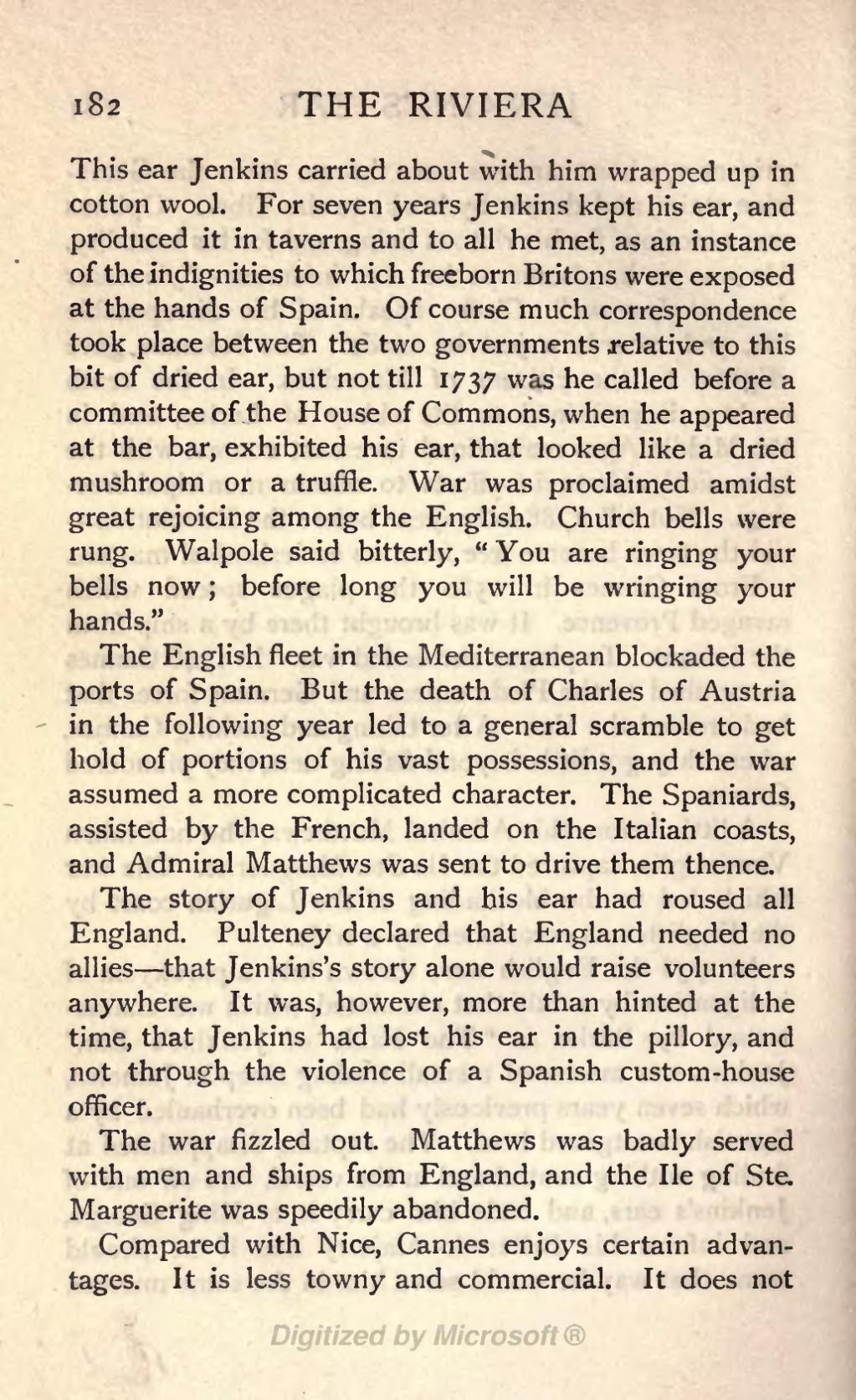This ear Jenkins carried about with him wrapped up in cotton wool. For seven years Jenkins kept his ear, and produced it in taverns and to all he met, as an instance of the indignities to which freeborn Britons were exposed at the hands of Spain. Of course much correspondence took place between the two governments relative to this bit of dried ear, but not till 1737 was he called before a committee of the House of Commons, when he appeared at the bar, exhibited his ear, that looked like a dried mushroom or a truffle. War was proclaimed amidst great rejoicing among the English. Church bells were rung. Walpole said bitterly, "You are ringing your bells now; before long you will be wringing your hands."
The English fleet in the Mediterranean blockaded the ports of Spain. But the death of Charles of Austria in the following year led to a general scramble to get hold of portions of his vast possessions, and the war assumed a more complicated character. The Spaniards, assisted by the French, landed on the Italian coasts, and Admiral Matthews was sent to drive them thence.
The story of Jenkins and his ear had roused all England. Pulteney declared that England needed no allies that Jenkins's story alone would raise volunteers anywhere. It was, however, more than hinted at the time, that Jenkins had lost his ear in the pillory, and not through the violence of a Spanish custom-house officer.
The war fizzled out. Matthews was badly served with men and ships from England, and the Ile of Ste. Marguerite was speedily abandoned.
Compared with Nice, Cannes enjoys certain advantages. It is less towny and commercial. It does not

